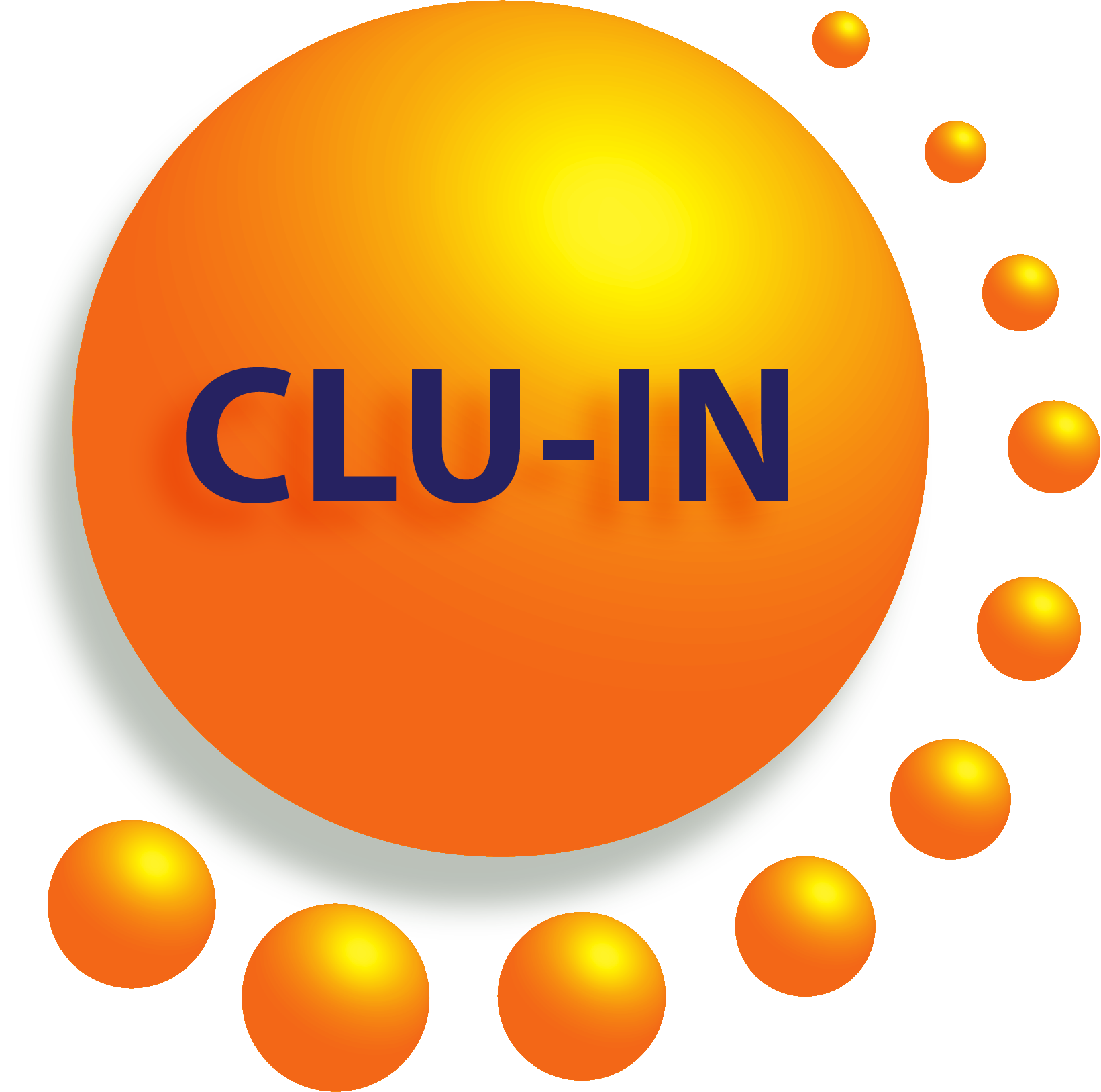Revitalizing Rural Communities: Addressing Contaminated Sites Using the NEW Investment Playbook
Archived: Tuesday, October 3, 2023
Sponsored by: U.S. EPA
Rural community residents and leaders often wish to revitalize their downtowns but do not know where to start or how to pay for the needed planning and infrastructure to move development forward. Written through the lens of rural Appalachia, the revitalization approaches described in the Downtown Revitalization Playbook can be used by small communities across the United States. Rural downtowns often include properties with contaminant concerns, including brownfields and Superfund sites. The health and safety challenges posed by these contaminated spaces, alongside vacant storefronts and empty gathering places, reinforce downtown disinvestment. The playbook provides practical steps to organize a local team with the right mix of skills to reimagine, initiate and attract investment back to rural downtowns.
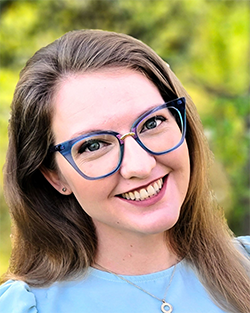 Ruthie Caldwell, Vision Granted LLC
Ruthie Caldwell, Vision Granted LLC
Ruthie Caldwell is one of the co-authors of the investment playbook as well as the owner of Vision Granted--a grant writing, project management, and facilitation consulting agency based in Eastern Kentucky specializing in community and economic development. Ruthie was a participant in the inaugural Appalachia Investment Framer Action Cohort training series in 2022. She has a Master’s in Communication and is a certified Project Management Professional (PMP).
 Melissa Levy, Community Roots LLC
Melissa Levy, Community Roots LLC
Melissa Levy is also a co-author of the investment playbook and is the Principal of Community Roots, a rural community and economic development consulting firm. For over 20 years she has been working with federal, state, and local governments, nonprofit organizations, foundations and citizens groups in natural resource-based industries like agriculture, forestry and tourism/recreation, as well as creative economies. She manages the WealthWorks Northeast Regional Hub, spreading the wealth creation approach throughout the northeast. Melissa has a variety of experience working in Appalachia as a coach and facilitator to Central Appalachian Ford Foundation grantees, as a measurement coach, and in feasibility research.
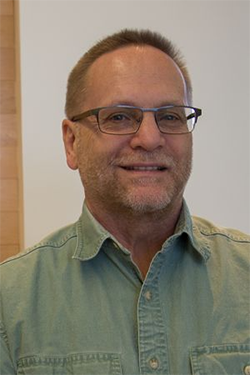 Ray Moeller, Brownfields Assistant Center, West Virginia University
Ray Moeller, Brownfields Assistant Center, West Virginia University
: Ray was one of the key people interviewed for the investment playbook who provided information and case studies about successful brownfield and downtown revitalization projects. He has a Bachelor of Science from Western Michigan University and worked for 28 years in the pharmaceutical industry before escaping to West Virginia a decade ago. Starting as an AmeriCorps VISTA in the New River Gorge Region, Ray then transitioned to a Community Economic Development Extension role landing in Morgantown, WV to work in the Brownfield Assistance Center at WVU, and primarily providing on-the-ground support for statewide Downtown Redevelopment.
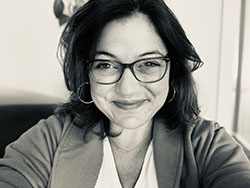 Alexis Rourk Reyes, U.S. EPA Office of Superfund Remediation and Technology Innovation, Superfund Redevelopment Program (Rourk.Alexis@epa.gov or 202-564-3179)
Alexis Rourk Reyes, U.S. EPA Office of Superfund Remediation and Technology Innovation, Superfund Redevelopment Program (Rourk.Alexis@epa.gov or 202-564-3179)
Alexis Rourk Reyes serves as the Program Manager for the Superfund Redevelopment Program at the Office of Superfund Remediation and Technology Innovation at the U.S. Environmental Protection Agency. The Superfund Redevelopment Program helps communities reuse formerly contaminated land through an array of tools, partnerships, and activities, aiming to provide long-impacted local communities with new opportunities to grow and prosper. Alexis previously served in EPA’s Office of Community Revitalization where she led technical assistance as part of the Building Blocks program and development of geospatial tools and analyses to promote local redevelopment efforts. Her previous positions and education were focused on in land use planning and public health research and communications.
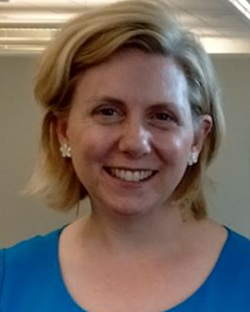 Aimee Storm, U.S. EPA, Office of Brownfield and Land Revitalization (storm.aimee@epa.gov or 202-566-0633)
Aimee Storm, U.S. EPA, Office of Brownfield and Land Revitalization (storm.aimee@epa.gov or 202-566-0633)
Aimee Storm is EPA's Land Revitalization Coordinator within EPA's Office of Brownfields and Land Revitalization (OBLR). Her work supports community-led redevelopment of contaminated properties and associated neighborhood revitalization strategies. Prior to joining OBLR, Aimee worked on projects that promote green and healthy buildings and sustainable development approaches within EPA Region V's Chicago office. She also worked with EPA's Federal Facilities Restoration and Reuse Office, where she coordinated EPA's land reuse and revitalization efforts on federally-owned properties, including military base redevelopment. Aimee holds Masters Degrees in City & Regional Planning and Business Administration.
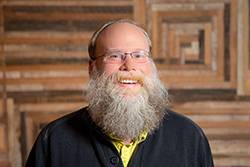 Shane Barton, The University of Kentucky (shane.barton@uky.edu)
Shane Barton, The University of Kentucky (shane.barton@uky.edu)
Shane Barton joined the University of Kentucky’s Community and Economic Development Initiative of Kentucky (CEDIK) team in May of 2017 as the Promise Zone Downtown Revitalization Coordinator. Before joining CEDIK, Shane served as the Assistant Director of the University of Kentucky Appalachian Center. He received two undergraduate degrees from Virginia Commonwealth University (VCU), one in Environmental Science and a second in Urban Studies and Geography, before earning his Masters of Urban and Regional Planning from VCU’s L. Douglas Wilder School of Public Policy and Administration.
Shane has a long-term commitment to inclusive and representative community development strategies with a particular focus on rural communities. He began his career serving the Appalachian region as a VISTA volunteer for the Upper Tennessee River Roundtable while a member of the Appalachian Coal Country Watershed VISTA team in Southwestern Virginia in 2005 where he later won a National VISTA Alumni Service Award for those efforts.
He has been at the University of Kentucky since 2009 and has coordinated various programs in Eastern Kentucky including the Growing Local Economies Program, The Eastern Kentucky Local Motive Alliance, UK Tomorrow Corps, and has presented collaborative work on community/university engagement and development strategies at national and international conferences, coedited the Coal Camp Documentary Project, coauthored articles on “materializing Appalachian Kentucky coal towns”. Shane currently serves as the CEDIK downtown revitalization coordinator and focuses his attention on supporting under served and under resourced communities navigate downtown planning and brownfield redevelopment opportunities throughout the Commonwealth of Kentucky.
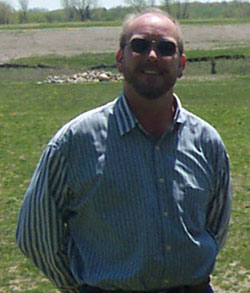 Tom Bloom, EPA Region 5 (bloom.thomas@epa.gov)
Tom Bloom, EPA Region 5 (bloom.thomas@epa.gov)
Tom Bloom is the Region 5 Superfund Redevelopment Coordinator and has been working with communities in his Region since the inception of the Superfund Redevelopment Initiative in 1999. Tom has worked with nearly 100 communities in Region 5 to help consider reuse as part of the cleanup process. Tom has decades of experience with EPA as both a remedial project manager and an on-scene coordinator. He has presented at numerous Brownfields, NARPM, and other conferences on the topic of Superfund Redevelopment and is considered a national expert.
Moderators:
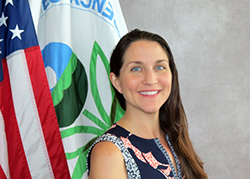 Jean Balent, U.S. EPA Technology Innovation and Field Services Division (balent.jean@epa.gov or 202-566-0832)
Jean Balent, U.S. EPA Technology Innovation and Field Services Division (balent.jean@epa.gov or 202-566-0832)
Ms Balent is on the staff of the EPA's Technology Innovation and Field Services Division where she has worked to collect and disseminate hazardous waste remediation and characterization information since 2003. Ms Balent manages the Clean Up Information Network website and actively supports online communication and collaboration resources available to EPA. She formerly worked with the US Army Corps of Engineers Environmental Engineering Division in the Buffalo District. Ms Balent was also a member of the SUNY-Buffalo Groundwater Research Group where she constructed and tested large scale models of groundwater flow. Ms Balent has also conducted research relating to the Great Lakes, environmental remediation, and brownfields re-development. She holds a Bachelor's degree in environmental engineering from SUNY-Buffalo and a Master's degree in Information Technology from AIU.
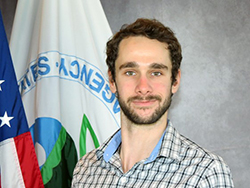 Renan Havill, U.S. EPA Technology Innovation and Field Services Division (havill.renan@epa.gov or 703-615-7735)
Renan Havill, U.S. EPA Technology Innovation and Field Services Division (havill.renan@epa.gov or 703-615-7735)
Renan works in the Technology Integration and Information Branch of the Technology Innovation and Field Services Division at EPA Headquarters. He supports the CERCLA Education Center and Clean Up Information Network webinars where institutional knowledge is preserved and new clean up technology is disseminated. He leads webinar series that inform regional Superfund staff of EPA Headquarters resources and manages collaborative tools developed. Renan holds a Bachelor's of Science in Environmental Science from Indiana University and a Master's of Science in Biomedical Engineering from George Washington University. He worked as a supervisory laboratory technician in a medical diagnostics lab prior to joining the EPA.
Webinar Slides and References:
Additional Resources:
- You are encouraged to access the Downtown Revitalization Playbook at https://www.downtownplaybook.org/ as well as to complete the Readiness Assessment at https://www.downtownplaybook.org/readiness-assessment. The Readiness Assessment is designed to help your community identify which factors you have in place to leverage for downtown revitalization while also providing context for how the community can overcome any acknowledged challenges.
Help & FAQs
- Frequently Asked Questions
- Content Questions?
Call Aimee Storm at 202-566-0633 or storm.aimee@epa.gov - Technical Problems?
Leave us a comment - Cancel Your Registration
- My Participation Records
- CEU Credits and PDHs
Zoom Resources
Before Webinar Day
This seminar will be delivered through Zoom. Participants are encouraged to update to the latest version of the Zoom application for the best experience.
If you are unable to install the Zoom application, most functions will be available if you join just using a modern web browser such as Chrome, Edge or Firefox. We strongly encourage you to run the Zoom Meeting Test prior to attending this webinar. Technical support on the day of the webinar will be very limited and subject to significant delays.
Backup Conference Call
If you cannot participate using online audio, you may join the optional call in line. After checking in for the live event using the instructions listed below, you will see several options to participate. Please click the links in option 4 to follow along by phone and obtain the call in number. If you cannot access the phone number, you may request the call in line from the event moderator in the Q&A or send an email to Jean Balent at balent.jean@epa.gov
Click on "Join Webinar" at the top of this screen, enter your exact first and last name as you registered and enter the number of people attending at your location (including yourself). You should then be taken to the Zoom meeting room. Join with Zoom Application: For those joining with the Zoom application, you may be prompted to sign with a zoom account or join as a guest without signing in.
If joining as a guest, you will be prompted to enter your name and email address. Remember your name, image, video or voice may be visible to others in the live event. When done, click "Join" When it is time for the live event to start, the meeting host will admit you to the live Zoom meeting. Join via web browser (without the Zoom Application): For those joining with a web browser, you may close any pop ups prompting you to download the Zoom app. The next window will allow you to enter your name (first name and last name) and check the box that you are not a robot. Click the blue join button. You may also be asked to provide your email address before joining the room. Remember your name, image, video or voice may be visible to others in the live event. When done, click "Join" When it is time for the live event to start, the meeting host will admit you to the live Zoom meeting. You may need to periodically refresh the browser window to confirm if the host has admitted you. The presenters will control what slide you are viewing. You may submit questions online for the instructors to answer during the webinar by typing in the "Q&A" area. It is not necessary to wait until the question and answer periods to submit questions. At the end of the webinar you will be guided to our feedback form and links to additional resources, including the complete presentation. These links will remain active after the webinar. Provided for your convenience. Importing or accepting the invitation within this iCalendar file is not required, and declining the invitation does not cancel your registration. For additional information on iCalendar, please see our
iCalendar Help It is EPA's policy to make reasonable accommodation to persons with disabilities wishing to participate in the agency's programs and activities, pursuant to the Rehabilitation Act of 1973, 29 U.S.C. 791. Any request for accommodation should be made to Aimee Storm at 202-566-0633 or storm.aimee@epa.gov, preferably one week or more in advance of the webinar, so that EPA will have sufficient time to process the request. EPA would welcome specific recommendations from requestors specifying the nature or type of accommodation needed. EPA welcomes specific recommendations from requestors specifying the nature or type of accommodation needed. Please note that CLU-IN provides both alternate phone call-in options and closed captioning for all webinars, and requests for these specific accommodations are not necessary.
Webinar Day, Checking In
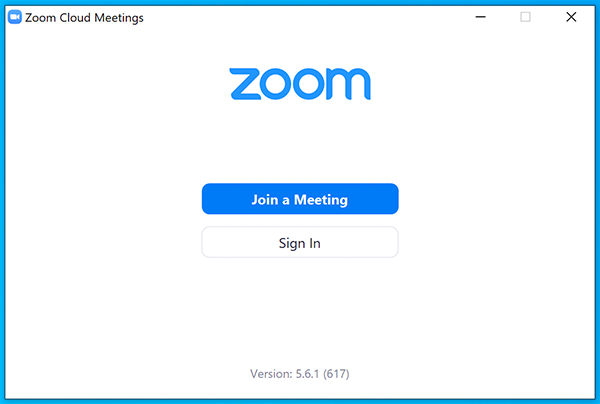
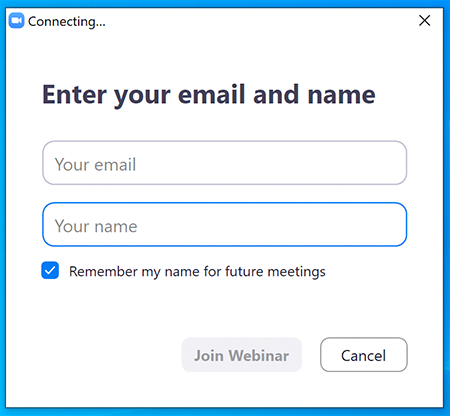
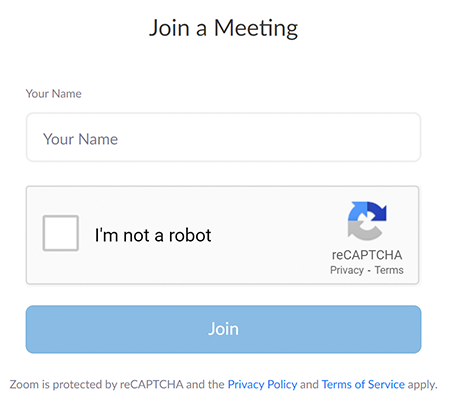
Moving Through Slides
Feedback & Links to Additional Resources
iCalendar File
Rehabilitation Act Notice for Reasonable Accommodation
Rehabilitation Act Notice for Reasonable Accommodation
It is EPA's policy to make reasonable accommodation to persons with disabilities wishing to participate in the agency's programs and activities, pursuant to the Rehabilitation Act of 1973, 29 U.S.C. 791. Any request for accommodation should be made to Aimee Storm at 202-566-0633 or storm.aimee@epa.gov, preferably one week or more in advance of the webinar, so that EPA will have sufficient time to process the request. EPA would welcome specific recommendations from requestors specifying the nature or type of accommodation needed. EPA welcomes specific recommendations from requestors specifying the nature or type of accommodation needed. Please note that CLU-IN provides both alternate phone call-in options and closed captioning for all webinars, and requests for these specific accommodations are not necessary.
Webinar Recording
By participating in this CLU-IN webinar, you automatically agree to authorize recording of audio and visual content presented during this live event and consent to subsequent use of this recording in the public domain by the U.S. Environmental Protection Agency. This recording may include questions, comments and poll responses provided by you during the live event in addition to your name, voice, image or likeness. This recording will be made available after the conclusion of the live event as part of the CLU-IN webinar archives, and will remain available indefinitely. If you do not wish to consent to the recording, please do not join the live event, and contact Jean Balent at 202-566-0832 or balent.jean@epa.gov to discuss your concerns.
Content Disclaimer
This webinar is intended solely to provide information to the public. The views and opinions expressed as part of this webinar do not necessarily state or reflect those of the U.S. Environmental Protection Agency. It is not intended, nor can it be relied upon, to create any rights enforceable by any party in litigation with the United States, or to endorse the use of products or services provided by specific vendors. With respect to this webinar, neither the United States Government nor any of their employees, makes any warranty, express or implied, including the warranties of merchantability and fitness for a particular purpose, or assumes any legal liability or responsibility for the accuracy, completeness, or usefulness of any information, apparatus, product, or process disclosed, or represents that its use would not infringe privately owned rights.

